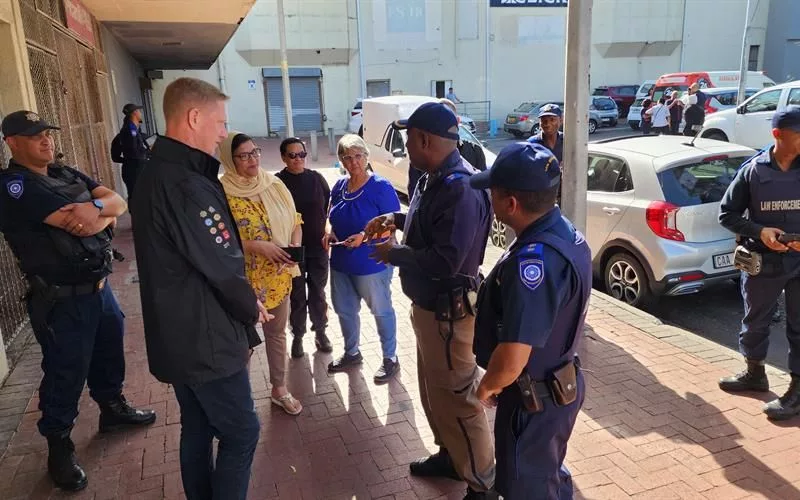The Africa Travel Indaba NTCE Networking Session in Durban brought together key players in the tourism industry to bridge the knowledge gap and position tourism as a desirable career path and lucrative business prospect. The event aimed to empower unemployed youth and graduates and mitigate the skill shortages in the sector. The day was filled with insightful discussions and emphasized the diverse career opportunities in the tourism industry, while celebrating the industry’s future and highlighting successful training programs.
What is the NTCE Networking Session at Africa Travel Indaba?
The Africa Travel Indaba NTCE Networking Session aims to bridge the knowledge gap among industry insiders, government officials, learners, and educators in the tourism industry. Its primary objective is to position tourism as a desirable career path, a burgeoning profession, and a lucrative business prospect, and to mitigate the skill shortages in the tourism sector by empowering unemployed youth and graduates. The event also provides a platform to amplify awareness about the diverse career opportunities within the tourism industry.
A significant day in May, brimming with ebullience in Durban, marked a remarkable moment in the Africa Travel Indaba NTCE Networking Session. The vibrant energy of the African tourism sector was palpable, primarily driven by insightful discussions led by Deputy Minister of Tourism, Mr. Fish Mahlalela. His compelling discourse left a deep impression on the attendees.
Uniting Key Players in the Tourism Industry
Delving into the day’s events, one cannot ignore the primary purpose of this networking session: to bridge the knowledge gap among industry insiders, government officials, learners, and educators. Conducted with utmost precision, the NTCE’s primary objective is to position tourism as a desirable career path, a burgeoning profession, and a lucrative business prospect. The target audience includes high school students, TVET College and University learners, youth who are not in school, and unemployed tourism graduates. The event’s core lies deeply rooted in its pledge to mitigate the skill shortages in the tourism sector by empowering unemployed youth and graduates.
Certainly, the Department of Tourism, via its National Tourism Sector Strategy, has pinpointed key areas focused on cultivating the capabilities of unemployed youth, especially within the critical and scarce skills zone in the hospitality and tourism services sector. Consequently, the NTCE was established to generate a deliberate talent pool for the sector while simultaneously offering the tourism industry a stage to showcase itself.
Emphasizing Diverse Career Opportunities in Tourism
One notable aspect of the NTCE 2024 is the platform it provides to amplify awareness about the wide array of career opportunities within the tourism industry. It offers learners a unique chance to interact with potential employers, which introduces them to the professional world at an early stage.
For the past thirty years, South Africa has been grappling to restore social and economic justice across the country, addressing the entrenched inequality that originated from a history of systematic discrimination and dispossession. Education has been harnessed as a potent weapon to combat poverty and establish equal opportunities. The evidence of these efforts is visible in the country’s gradually improving fundamental education outcomes. The matric pass rate, hitting an all-time high of 82.9%, is a testimony to the positive path of this initiative.
The government acknowledges education’s critical role in catalyzing economic transformation and growth. Therefore, substantial efforts and resources have been channeled into creating jobs, nurturing newer and existing industries, and creating business prospects for young individuals.
Celebrating the Future of Tourism
The 2024 Tourism Africa Travel Indaba serves as a tribute to the refurbished future of the tourism industry and Africa’s brilliance. By coinciding with the graduation ceremony, it symbolizes the distribution of competency certificates to graduates throughout KZN, indicating a crucial milestone in their career path. It heralds a new beginning for the graduates as they embark on establishing a future for themselves and their families.
Mr. Mahlalela underscored the tourism industry’s need for adaptability and resilience as it remains the quickest expanding employment sector globally. South Africa is in the process of reconstructing its tourism sector with a keen focus on sustainability for forthcoming generations. The tourism sector, being a substantial economic catalyst, is more than just a revenue-generator; it is a people-oriented industry with people at its core.
Successful Implementation of Training Programs
The event also marked the successful execution of the Food and Beverage Training Programme in KwaZulu-Natal under the Tourism Sector Human Resource Development Strategy. The program’s accomplishment testifies to the fruitful partnership between the Department of Tourism, the Limpopo Department of Economic Development, Environment, and Tourism (LEDET), and the Culture, Arts, Tourism, Hospitality and Sports Sector Education and Training Authority (CATHSSETA).
In wrapping up, the imperative to create a demand-driven skills supply in the sector is key to the restoration and growth of the tourism industry. The success of contemporary tourism is intricately linked to skill development, making it a critical component for socio-economic progression. The Department of Tourism, in partnership with its stakeholders, has designed a sturdy Tourism Sector Recovery Plan, focusing on safeguarding and reviving supply, rekindling demand, and bolstering enabling capability for long-term sustainability. The Africa Travel Indaba NTCE Networking Session truly served as an apt platform to bring these strategic themes to life, shaping Africa’s tomorrow through today’s connections.
1. What is the Africa Travel Indaba NTCE Networking Session?
The Africa Travel Indaba NTCE Networking Session is an event that brings together key players in the tourism industry, government officials, learners, and educators to bridge the knowledge gap, position tourism as a desirable career path and a lucrative business prospect, and mitigate the skill shortages in the sector by empowering unemployed youth and graduates.
2. Who is the target audience of the Africa Travel Indaba NTCE Networking Session?
The target audience of the Africa Travel Indaba NTCE Networking Session includes high school students, TVET College and University learners, youth who are not in school, and unemployed tourism graduates.
3. What is the goal of the Africa Travel Indaba NTCE Networking Session?
The primary objective of the Africa Travel Indaba NTCE Networking Session is to position tourism as a desirable career path, a burgeoning profession, and a lucrative business prospect, while mitigating the skill shortages in the tourism sector by empowering unemployed youth and graduates.
4. What does the Africa Travel Indaba NTCE Networking Session emphasize?
The Africa Travel Indaba NTCE Networking Session emphasizes the diverse career opportunities available in the tourism industry and provides a platform for learners to interact with potential employers, introducing them to the professional world at an early stage.
5. What is the significance of education in South Africa’s pursuit of economic transformation and growth?
Education plays a critical role in catalyzing economic transformation and growth in South Africa, and substantial efforts and resources have been channeled into creating jobs, nurturing newer and existing industries, and creating business prospects for young individuals.
6. What is the Tourism Sector Recovery Plan, and how does it relate to the Africa Travel Indaba NTCE Networking Session?
The Tourism Sector Recovery Plan is a plan designed by the Department of Tourism in partnership with its stakeholders to revive and grow the tourism industry by focusing on safeguarding and reviving supply, rekindling demand, and bolstering enabling capability for long-term sustainability. The Africa Travel Indaba NTCE Networking Session serves as an apt platform to bring these strategic themes to life and shape Africa’s tomorrow through today’s connections.










